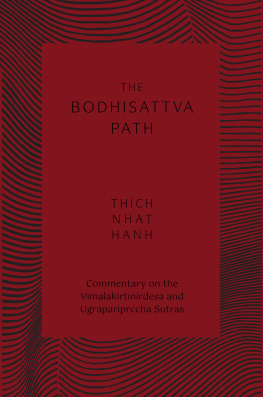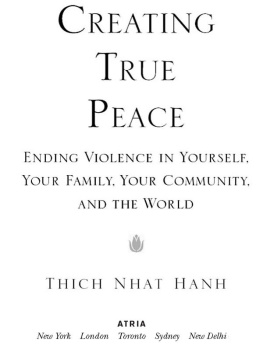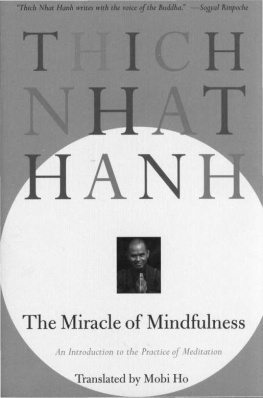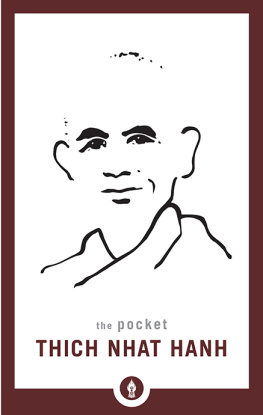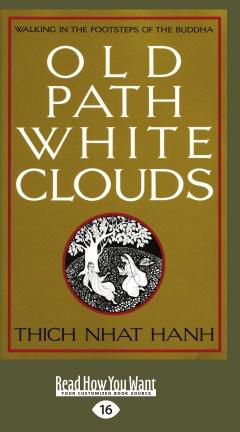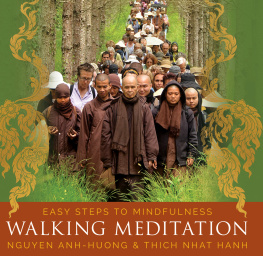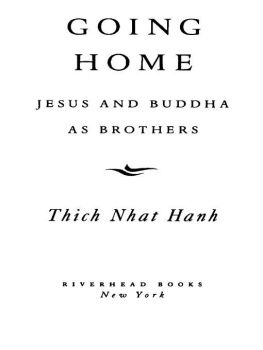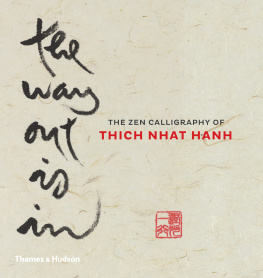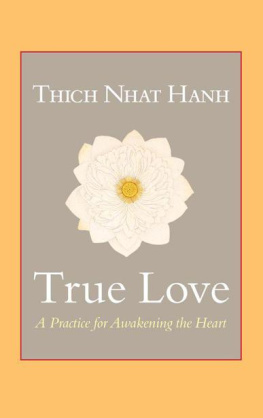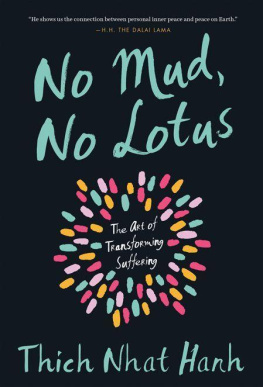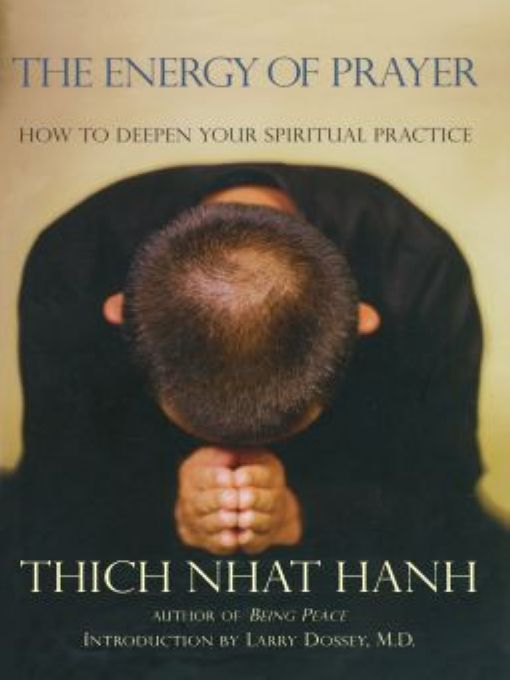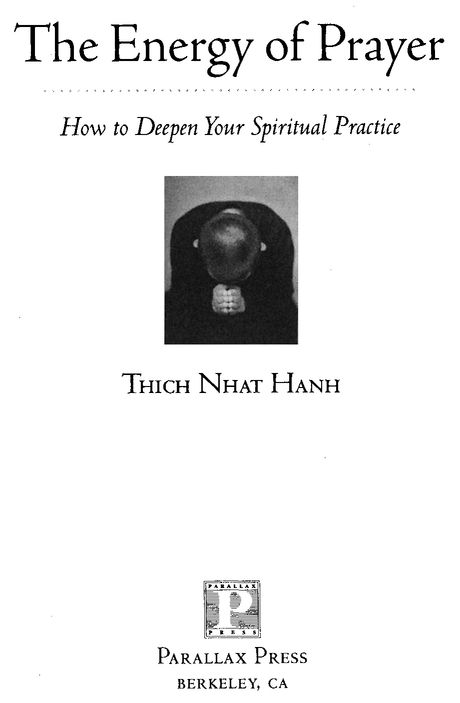Table of Contents
Introduction
THE URGE TO PRAY is universal. We know of no cultures, past or present, in which prayer does not occur. People pray when they are happy and sad, during celebrations and tragedies, at births and deaths, during peace and war, in cathedrals and cars, in poverty and plenty. Prayer, it seems, is in our blood.
Like the cosmic background hum that has filled the entire universe since its beginning, prayer is a continual presence on earth, a constant global hum. And like the background hum of the universe, prayer reminds us of our origins. For what is prayer but communication with the Absolute, from whence we arose, with whom we are connected, and to whom we shall return?
Einstein once said that he understood his theory of relativity until the mathematicians got hold of it. Similarly, I have often thought that I understood prayer until I read what theologians and philosophers had to say about it. This is one reason I admire this elegant book by Thich Nhat Hanh: its sheer simplicity. For him, prayer is as natural as breathing and walking, and even simpler. Prayer is not just what we do, it is also who we are. In the end, it matters not whether we say thee, thou, or hey you. In prayer, it is the attitude of our heart that counts.
Lord Bertrand Russell said, One of the symptoms of an approaching nervous breakdown is the belief that ones work is terribly important. I sometimes think that most people who write about prayer are headed to some sort of mental disaster, because they are so serious. They seem to think that a sense of humor is a moral weakness. You will not find that attitude in this book. Instead, prepare for a lightness and joy that are hallmarks of Thich Nhat Hanhs work in the world.
Serious prayer has always seemed an oxymoron to me. I prefer instead the idea of sincere prayer. Sincere prayer has room for a light heart, while serious prayer does not. In keeping with this view, the Christian author G. K. Chesterton said, It is a test of a good religion whether you can make a joke about it. If he is correct, one wonders whether there are any good religions left in the land. Thankfully, some individuals manage to escape the moroseness that has always infected western religions. For example, following a lecture that Barbara, my wife, and I gave to a group of physicians on the role of spirituality in healthcare, a female surgeon said that she wanted to share with us the prayer she always prays before entering the operating room. She raises her hands and prays, Dear God, these are your hands. Now dont go and embarrass yourself. Beware those who cannot laugh at their own spirituality. Chesterton again: A good joke is the one ultimate and sacred thing that cannot be criticized.
In my profession of medicine, we have entered a Golden Age of prayer. Prayer has re-entered the hospitals and clinics of the land. In the early 1990s, only three of the 125 medical schools in the United States featured courses in which spirituality was addressed. Currently, around ninety medical schools have courses that examine the correlations between spirituality and health. Medical students are now taught to take spiritual histories from their patients. Scores of studies show that individuals who follow some sort of religious or spiritual path in their life, it appears not to matter which one they choose, live longer on average than those who do not choose a spiritual path, and on average they have a lower incidence of all major diseases. This data has generated great interest in medicine, for how can we physicians not inform patients about something that can help them live longer and be healthier in the process?
But how can physicians respond to these developments? A close friend of mine, a fellow internist, became interested in the evidence favoring prayer and decided he should make prayer a part of his medical practice. How could he do so respectfully and without being intrusive? He devised a three-sentence paragraph that his receptionist handed to everyone who came into his office. It simply said, I have reviewed the evidence surrounding prayer, and I believe prayer might help you. As your physician, I choose to pray for you. However, if you do not want me to pray for you, sign this sheet and return it to the receptionist, and I will not add you to my prayer list. Over several years, no one signed the sheet.
Philosopher Manly P. Hall once said, There is a type of person in whose mind God is always getting mixed up with vitamins. In other words, just as people take vitamins to improve their physical health, people pray in order to live longer and be healthier. If this is all we make of prayer, it becomes little more than the latest tool in our black bag of medical tricks. Prayer is more majestic than that. It is a bridge to the Absolute. If we get a long, healthy life in the bargain, that is a blessing. If we do not, and there have been many God-realized saints and mystics who died young of terrible diseases, we shall have to settle for immortality, for immortality is one of prayers implications.
Currently, more than 200 controlled experiments in humans, plants, animals, and even microbes suggest that the compassionate, loving prayers and intentions of one individual can affect another individual or object at great distances. These studies paint a picture of human consciousness that is nonlocal, a fancy word for infinite. Our individual mind appears to be connected with all other minds, no matter how far apart. Individual minds appear to be unboundedand if unbounded and unlimited, they eventually come together to form a single mind, which our ancestors referred to as the Universal Mind. Therefore, the most significant contribution that prayer makes to our welfare is not the curing of any particular disease, but the realization that we are infinite, eternal, and one. Infinitude, eternality, and oneness are terms we have traditionally attached to the Divine. We thus share qualities with the Absolute, however we name it: the Divine within.
If readers attempt to convert this book into some sort of rigid formula for their lives, they will have missed the authors meaning. In the end, let us honor the eternal mysteries of prayer, for it is mystery, not some imagined formula, that always endures. No one has ever been successful in reducing prayer to a formulaic method that always works in some utilitarian sense, although millions have tried. This is not surprising, for the Absolute is ultimately beyond rational knowing. How does prayer work? My favorite explanation is embodied in Sir Arthur Eddingtons remark about the Uncertainty Principle in modern physics: Something unknown is doing we dont know what. Or in Dr. Seuss comment, It just happened to happen. It is not a sign of weakness to confess our ignoranee of prayers workings. In medicine, we have often known that something works millennia before we have known how it works.
Thich Nhat Hanhs treatise on prayer points like an arrow to religious tolerance. His views affirm that prayer is universal, belonging to the entire human race and not to specific religions. Like the many experimental studies of prayer and healing intentions, this book shows that no specific tradition has a monopoly on prayer, contrary to the claims we often hear. In a world aflame with religious intolerance, this message is more important than ever before.
Thich Nhat Hanhs vision of prayer is food for the soul. Let us hope that millions partake of it, for on this meal our future may depend.


